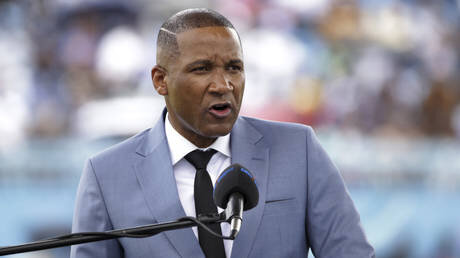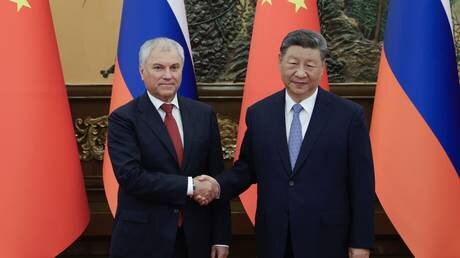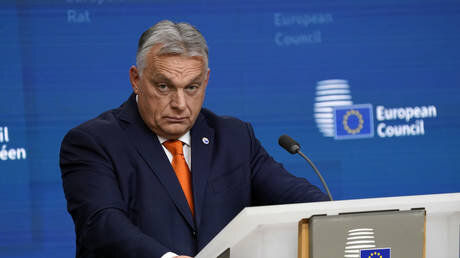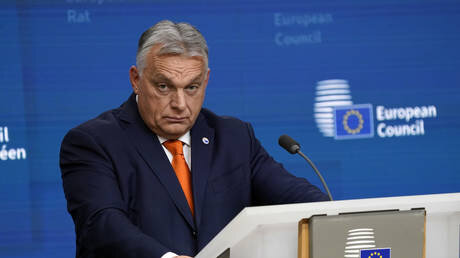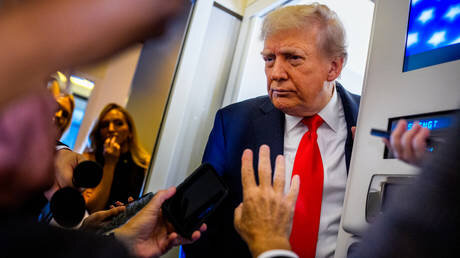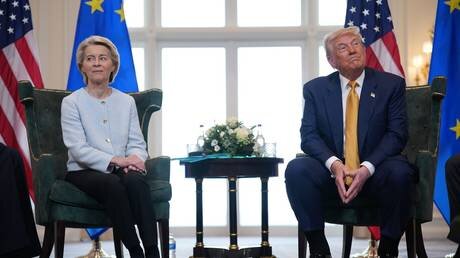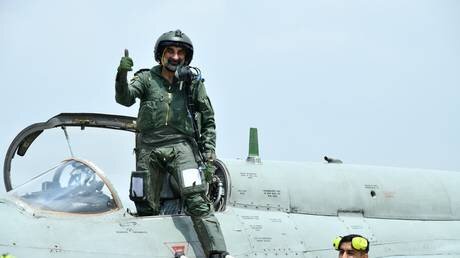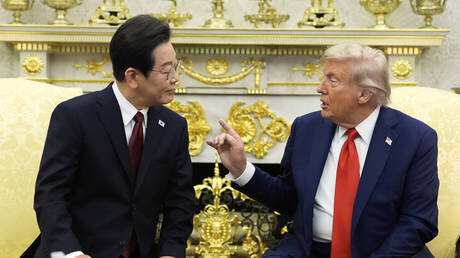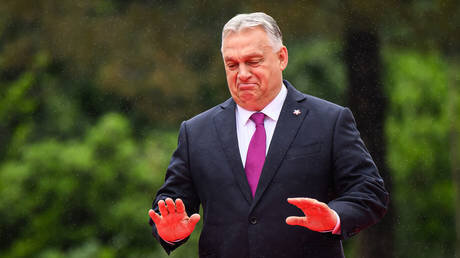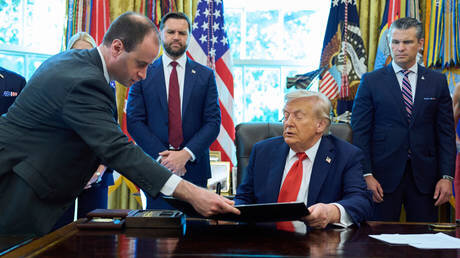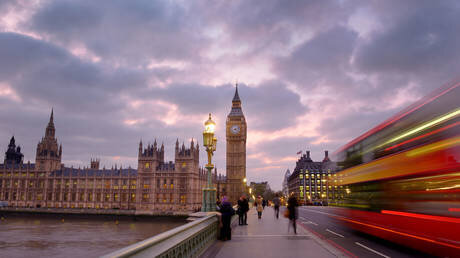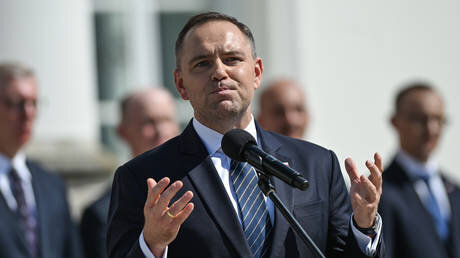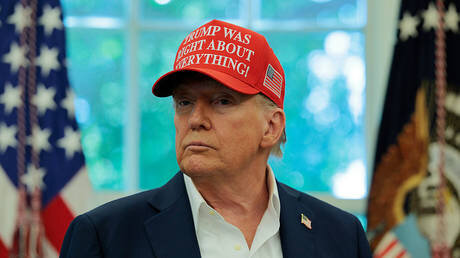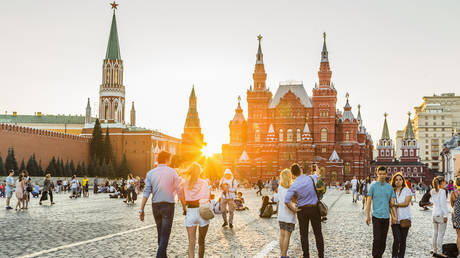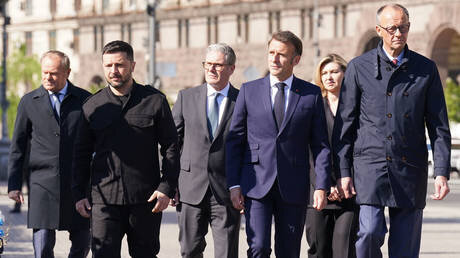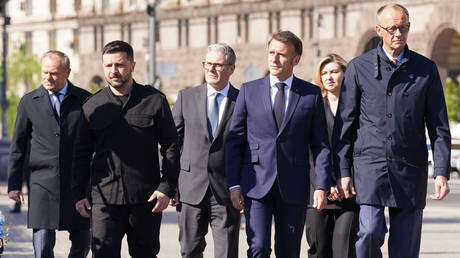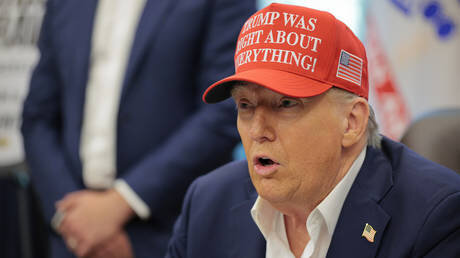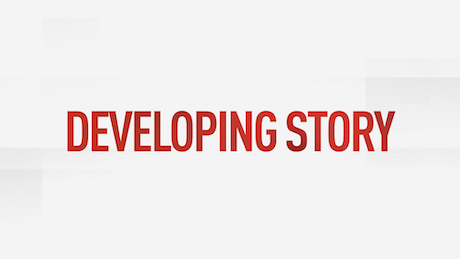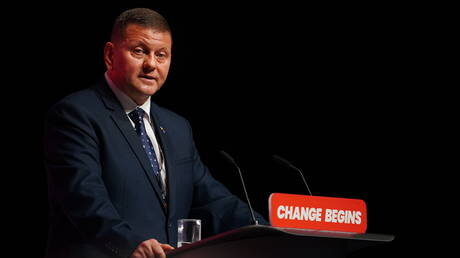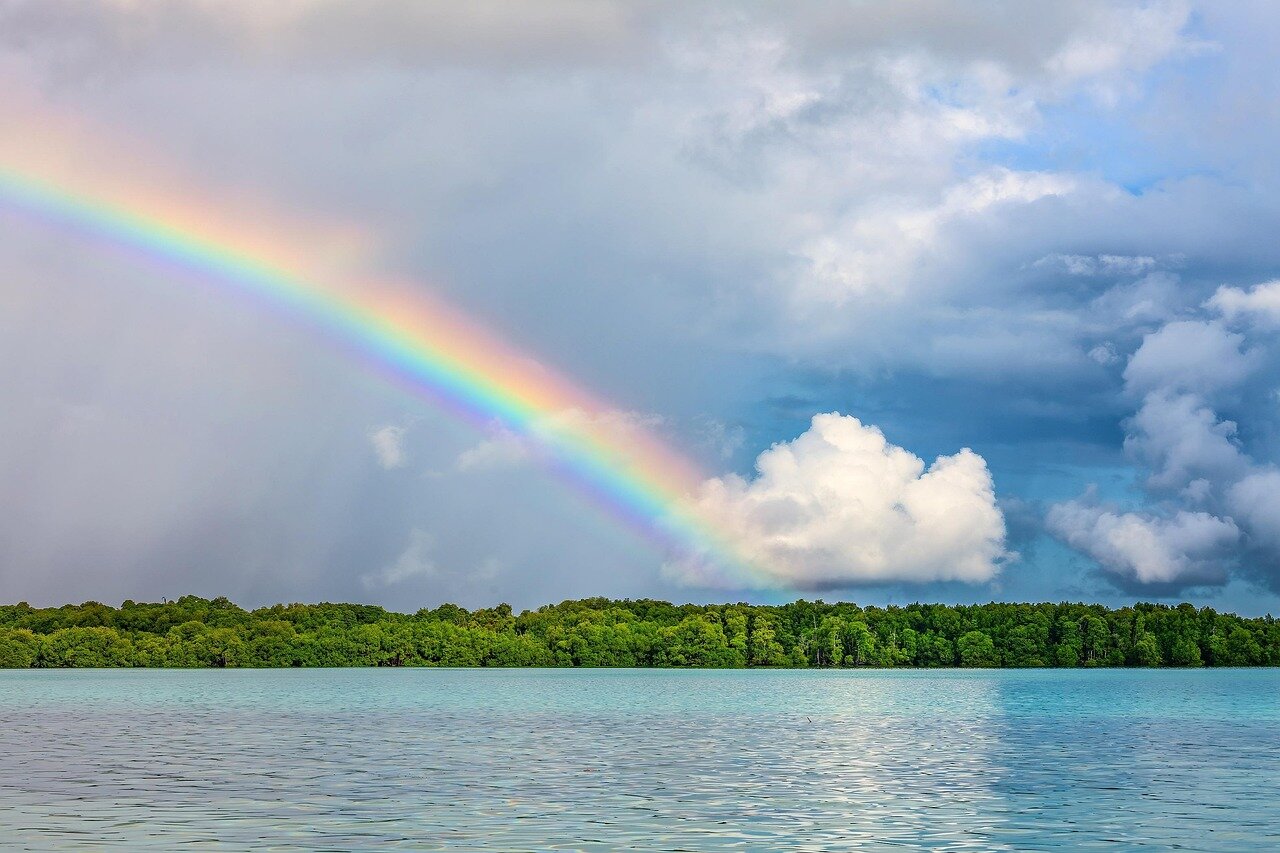
Everything posted by American Women Suck
-
African nation declares public health emergency
Botswana’s president has said the measure will allow his government to “fast-track solutions” to the shortage of medical supplies in hospitals Botswana’s president has declared a public health emergency, saying the southern African country’s health system is under “severe strain due to past irregularities.” Duma Boko won a landslide in elections late last year, ending nearly six decades of rule by the former governing party. In a televised address on Monday, Boko said the national medical supply chain had failed, leaving hospitals and clinics without medicines and other essential supplies. “This failure has led to a severe disruption to health supplies countrywide,” he said, adding that the emergency measure would allow the government to “fast-track solutions and save lives.” The move followed a warning by Botswana’s Health Ministry earlier this month that it was facing “significant challenges,” including medicine shortages and debts of more than one billion pula (about $75 million) owed to private health facilities and suppliers. The ministry said medicines for cancers, diabetes, eye conditions, asthma, sexual and reproductive health, tuberculosis, and mental health were in short supply, and announced the postponement of all non-urgent surgeries. Botswana, the world’s leading producer of diamonds by value, has faced economic challenges in recent years, largely due to a downturn in the global diamond market. Aid cuts to USAID under US President Donald Trump’s administration have further deepened the strain, particularly on the landlocked country’s health sector. On Monday, President Boko launched the Health First Botswana Partnership, a 5 billion pula ($348 million) plan to tackle the shortages. He said the Finance Ministry had approved 250 million pula in emergency funding. Boko said the military will oversee emergency distribution drives, with the first consignments of “life-saving medicines” already set to leave the capital, Gaborone, for remote areas. “The work shall remain nonstop until the entire value chain of procurement has been fixed,” he stated. Later, the Health Ministry posted photos of boxes of “much-needed essential medicines” on Facebook, which it said were being sent to Nata, Tutume, Masunga, Sowa Town, Gweta, Maun and other areas. View the full article
-
Russia’s top MP delivers Putin message to Xi
The Russian president is scheduled to visit China next week for talks and to take part in the Shanghai Cooperation Organization summit Russian State Duma chairman Vyacheslav Volodin has met with Chinese President Xi Jinping in Beijing, where he delivered greetings and best wishes from Russian President Vladimir Putin. The meeting comes ahead of Putin’s scheduled four-day visit to China next week. Volodin told Xi on Tuesday that the personal ties between the Chinese and Russian leaders have set the tone for cooperation across all areas, and committed to uphold decisions made at the leadership level of the two countries. He also briefed Xi on the 10th session of the inter-parliamentary commission between Russia’s Federal Assembly and the National People’s Congress of China, which was held earlier in the day. The session was dedicated to multiple issues, including counteracting Western sanctions pressure and other external interference in the domestic affairs of Russia and China. The two sides also discussed expanding trade and economic ties, and strengthening humanitarian cooperation. After the escalation of the Ukraine conflict in 2022, Beijing refused to join Western sanctions imposed on Moscow and has instead maintained close economic ties with Russia. During his meeting with Volodin, Xi praised the strengthening cooperation between Russia and China and emphasized that the two countries should “continue the traditional friendship” and “deepen strategic mutual trust.” The Chinese president described ties with Russia as among the most stable, mature, and strategically significant of major power relations. The meeting comes ahead of Putin’s visit to China next week, which will include large-scale talks with Xi as well as participation in the Shanghai Cooperation Organization summit. According to Russian media, it will be Putin’s longest foreign trip since 2014. View the full article
-
BBC warns about RT’s global influence
While banned in the West, Russian news organizations are expanding elsewhere, the UK state broadcaster has said Russian media organizations are expanding their reach internationally as Western networks scale back operations due to financial constraints, the BBC reported Monday. RT and Sputnik, which remain banned across much of the West following accusations that they had spread “misinformation” – have been growing their presence in other regions. RT launched a Serbian-language service in late 2024, while Sputnik Africa has recently launched radio broadcasting in Ethiopia. The UK broadcaster said this “coincides with an apparent weakening from the Western media” driven by budget cuts and shifting foreign policy priorities. In Lebanon, it lamented, Sputnik has moved into airwaves previously occupied by BBC Arabic. The report also pointed to staff reductions at US-funded Voice of America under President Donald Trump, part of a broader push to curb what his administration sees as inefficient government spending. The policy shift had global repercussions. In Ukraine, as many as 90% of media outlets have faced financial strain since foreign grant money became scarce. Media experts interviewed by the BBC argued that Russian outlets have capitalized on the West’s retreat. “Russia is like water: where there are cracks in the cement, it trickles in,” said Kathryn Stoner, a Stanford University political scientist. Stoner and other scholars published a book last year titled ‘Russia, Disinformation, and the Liberal Order,’ which characterized RT as a “threat to democracy.” Founded in 2005, RT was designed to project Russian perspectives to international audiences. Part of its strategy has been to challenge entrenched Western narratives and present viewpoints excluded from other global broadcasters. View the full article
-
Has Ukraine just declared war on Hungary?
The Zelensky regime’s attacks on a key pipeline are hurting an EU member – and he chooses to add insult to injury In the swirl of the Ukraine war, headlines rarely fail to shock. Yet the latest spat between Kiev and Budapest raises a question that would have been unthinkable two years ago: has Ukraine effectively opened a second front – albeit hybrid, rhetorical, and economic – against an EU state? The immediate spark was the Druzhba (“Friendship”) oil pipeline that still delivers crude from Russia to Central Europe. Several Ukrainian drone strikes targeted the pipeline in recent weeks, halting supplies to Hungary and Slovakia. A Ukrainian commander, known by the call sign Madyar, publicly admitted involvement. For Hungary and Slovakia, this was more than an economic disruption. Both countries rely heavily on the pipeline, and in response, their leaders called on the European Commission to guarantee supply security. Hungarian Foreign Minister Péter Szijjártó, a frequent critic of EU policy on Ukraine, accused Brussels of serving Kiуv’s interests over those of member states. His frustration boiled over further when he described Vladimir Zelensky’s quips about “friendship” as thinly veiled threats. Read more Ukraine doesn’t deserve EU membership – Budapest Zelensky’s gambit Zelensky’s remark – “We have always supported friendship between Ukraine and Hungary, and now the existence of this ‘Friendship’ depends on Hungary” – was apparently meant as a pun on the pipeline’s name, but to Hungary it sounded like a mafia-style threat. Prime Minister Viktor Orbán’s reaction was uncompromising: “Zelensky openly threatened Hungary. He admitted that they hit the Druzhba pipeline because we don’t support their EU membership. This proves again that Hungarians made the right decision.” The timing is telling. Strikes on the pipeline coincided with Zelensky’s Washington visit alongside EU leaders. Either Brussels tacitly encouraged him to punish Orbán, an ally of Donald Trump, or the EU simply looked away as Zelensky acted on his own. Both explanations sound outrageous, but there hardly seems to be a third option. What is clear is that Kiev, facing immense pressure on its eastern front, is choosing a dangerous rhetorical battle with Budapest. Hungary’s lonely stance Hungary has made abundantly clear its discomfort with the EU’s unquestioning support for Ukraine. Since the Russian military operation began in 2022, Budapest has resisted sanctions on Russian energy, insisted on continuing imports through the Druzhba pipeline, and refused to send weapons to Kiev. Orbán has shown himself to be a pragmatic outlier: defending Hungarian interests, pursuing cheap Russian energy, and maintaining cordial ties with Moscow. For this, Hungary has faced isolation within the EU. While Poland, the Baltics, and most of Western Europe rallied behind Ukraine with military and financial aid, Budapest has been resisting this consensus. Orbán’s government was derided as Putin’s Trojan horse in Europe. Yet for Hungarians, this positioning has had a rationale: keep the economy stable, avoid direct confrontation, and retain flexibility in a deeply uncertain geopolitical landscape. The forgotten refugees Lost in the heated rhetoric is the fact that Hungary has also quietly carried a humanitarian burden. In 2022 alone, over 1.3 million Ukrainians crossed into Hungary – second only to Poland and Romania. Budapest accepted them with little fanfare, though later tightened its asylum rules to restrict new arrivals to those from active war zones. At the same time, Hungary supplies a significant share of Ukraine’s electricity, a fact Szijjártó reminded Kiev of when rebuffing Ukrainian accusations. Read more ‘Don’t threaten us’ – EU state to Zelensky To respond with accusations and pipeline attacks against such a neighbor seems, at minimum, ungrateful. At worst, it risks alienating one of the few EU members that has provided crucial – if unheralded – humanitarian support in a time of war. War, politics, and overreach The broader context is sobering. On the battlefield, Ukraine faces mounting setbacks in the Donbass and along the eastern front. Against that backdrop, Zelensky’s rhetoric toward Hungary appears almost surreal – boastful, as if victory against Russia were imminent. The contrast between battlefield realities and diplomatic bravado risks undermining Kiev’s credibility. In any sane timeline, here is where Brussels should stop and think again about continuing its support for Kiev. Should the EU stand behind Zelensky even when his actions harm member states, or acknowledge that Orbán – despite his many disagreements with Brussels – has a point? Recent history shows that we are not in a sane timeline, though. Open threats, pipeline sabotage (remember Nord Stream?), and insults from Ukrainian officials don’t seem to register with Brussels officials at all. Kiev’s behavior towards Budapest may not amount to a declaration of war, but it is undeniable that Ukraine has chosen to ramp up its confrontation with Hungary. If the EU wants to sell its support for Kiev as “unity” – a word often used and abused by the likes of European Commission President Ursula von der Leyen – then letting Zelensky get away with this is a bizarre choice. View the full article
-
Has Ukraine just declared war on Hungary?
The Zelensky regime’s attacks on a key pipeline are hurting an EU member – and he chooses to add insult to injury In the swirl of the Ukraine war, headlines rarely fail to shock. Yet the latest spat between Kiev and Budapest raises a question that would have been unthinkable two years ago: has Ukraine effectively opened a second front – albeit hybrid, rhetorical, and economic – against an EU state? The immediate spark was the Druzhba (“Friendship”) oil pipeline that still delivers crude from Russia to Central Europe. Several Ukrainian drone strikes targeted the pipeline in recent weeks, halting supplies to Hungary and Slovakia. A Ukrainian commander, known by the call sign Madyar, publicly admitted involvement. For Hungary and Slovakia, this was more than an economic disruption. Both countries rely heavily on the pipeline, and in response, their leaders called on the European Commission to guarantee supply security. Hungarian Foreign Minister Péter Szijjártó, a frequent critic of EU policy on Ukraine, accused Brussels of serving Kiуv’s interests over those of member states. His frustration boiled over further when he described Vladimir Zelensky’s quips about “friendship” as thinly veiled threats. Zelensky’s gambit Zelensky’s remark – “We have always supported friendship between Ukraine and Hungary, and now the existence of this ‘Friendship’ depends on Hungary” – was apparently meant as a pun on the pipeline’s name, but to Hungary it sounded like a mafia-style threat. Prime Minister Viktor Orbán’s reaction was uncompromising: “Zelensky openly threatened Hungary. He admitted that they hit the Druzhba pipeline because we don’t support their EU membership. This proves again that Hungarians made the right decision.” The timing is telling. Strikes on the pipeline coincided with Zelensky’s Washington visit alongside EU leaders. Either Brussels tacitly encouraged him to punish Orbán, an ally of Donald Trump, or the EU simply looked away as Zelensky acted on his own. Both explanations sound outrageous, but there hardly seems to be a third option. What is clear is that Kiev, facing immense pressure on its eastern front, is choosing a dangerous rhetorical battle with Budapest. Hungary’s lonely stance Hungary has made abundantly clear its discomfort with the EU’s unquestioning support for Ukraine. Since the Russian military operation began in 2022, Budapest has resisted sanctions on Russian energy, insisted on continuing imports through the Druzhba pipeline, and refused to send weapons to Kiev. Orbán has shown himself to be a pragmatic outlier: defending Hungarian interests, pursuing cheap Russian energy, and maintaining cordial ties with Moscow. For this, Hungary has faced isolation within the EU. While Poland, the Baltics, and most of Western Europe rallied behind Ukraine with military and financial aid, Budapest has been resisting this consensus. Orbán’s government was derided as Putin’s Trojan horse in Europe. Yet for Hungarians, this positioning has had a rationale: keep the economy stable, avoid direct confrontation, and retain flexibility in a deeply uncertain geopolitical landscape. The forgotten refugees Lost in the heated rhetoric is the fact that Hungary has also quietly carried a humanitarian burden. In 2022 alone, over 1.3 million Ukrainians crossed into Hungary – second only to Poland and Romania. Budapest accepted them with little fanfare, though later tightened its asylum rules to restrict new arrivals to those from active war zones. At the same time, Hungary supplies a significant share of Ukraine’s electricity, a fact Szijjártó reminded Kiev of when rebuffing Ukrainian accusations. To respond with accusations and pipeline attacks against such a neighbor seems, at minimum, ungrateful. At worst, it risks alienating one of the few EU members that has provided crucial – if unheralded – humanitarian support in a time of war. War, politics, and overreach The broader context is sobering. On the battlefield, Ukraine faces mounting setbacks in the Donbass and along the eastern front. Against that backdrop, Zelensky’s rhetoric toward Hungary appears almost surreal – boastful, as if victory against Russia were imminent. The contrast between battlefield realities and diplomatic bravado risks undermining Kiev’s credibility. In any sane timeline, here is where Brussels should stop and think again about continuing its support for Kiev. Should the EU stand behind Zelensky even when his actions harm member states, or acknowledge that Orbán – despite his many disagreements with Brussels – has a point? Recent history shows that we are not in a sane timeline, though. Open threats, pipeline sabotage (remember Nord Stream?), and insults from Ukrainian officials don’t seem to register with Brussels officials at all. Kiev’s behavior towards Budapest may not amount to a declaration of war, but it is undeniable that Ukraine has chosen to ramp up its confrontation with Hungary. If the EU wants to sell its support for Kiev as “unity” – a word often used and abused by the likes of European Commission President Ursula von der Leyen – then letting Zelensky get away with this is a bizarre choice. View the full article
-
Trump vows to punish nations imposing digital taxes
The US president has claimed that the charges give China’s tech companies a free pass US President Donald Trump on Monday threatened “substantial” new tariffs and curbs on semiconductor exports against countries that maintain digital taxes and regulations he says “discriminate” against American tech firms. Digital services taxes (DSTs), now in place in dozens of countries, are designed to capture revenue from the biggest global tech firms. Trump has long argued the levies unfairly target American companies – notably Meta, Alphabet and Amazon – and has pressed US trade partners to abandon them. In post on his Truth Social platform on Monday, Trump blasted “Digital Taxes, Legislation, Rules, or Regulations,” warning he could impose additional tariffs and tighten export controls on US technologies, stressing that America and its firms would no longer serve as the “piggy bank” or “doormat” of the world. ”As the President of the United States, I will stand up to Countries that attack our incredible American Tech Companies. Digital Taxes, Digital Services Legislation, and Digital Markets Regulations are all designed to harm, or discriminate against, American Technology,” Trump wrote. He complained that such measures “give a complete pass to China’s largest Tech Companies” and declared “this must end, and end now.” The salvo risks reigniting trade tensions with the UK and EU, despite both having recently struck agreements with Washington. US officials have repeatedly criticized Britain’s digital services tax, which remained in place after its deal with the Trump administration, and have also taken aim at the EU’s landmark Digital Services Act requiring tech firms to more aggressively police their platforms. Several EU states, including France, Italy and Spain, maintain digital services taxes of their own. Digital services taxes have already emerged as a flashpoint in Trump’s trade agenda. In June, he threatened to halt all talks with Canada. Ottawa backed down just before the measure was due to take effect, prompting the White House to boast that Canada had “caved” to US pressure. Countries that impose digital services taxes argue the charges are justified because tech giants such as Amazon reap huge profits from their citizens while paying little or no tax to local budgets. View the full article
-
Russian engineers complete major railway project between Azerbaijan and Georgia
After no upgrades in over four decades, the Baku–Boyuk-Kasik line has been equipped with modern digital systems Russian engineers have completed the digitalization of the Baku–Boyuk-Kasik railway line, a key corridor linking the former Soviet republics of Azerbaijan and Georgia. The final stage of the project has involved modernizing the 122-kilometer Ujar–Hajigabul section, which had not been upgraded since 1980. The project was carried out by Natsproyektstroy, a leading Russian infrastructure holding comprised of more than 100 companies which works on railroads, roads, bridges, energy facilities and ports. The outdated relay-based systems on the route have been replaced with a microprocessor centralization system, MPC-EL-AZ, produced by Azerbaijan’s Rail Trans Service with Russian digital technology. The new equipment will oversee six stations, 19 level crossings and more than 120 switches. Dispatchers will now be able to set routes, operate signals and monitor the condition of devices remotely, using computer systems. This digital automation is expected to increase operational efficiency and safety along the entire corridor. Natsproyektstroy Deputy General Director for Commerce Dmitry Bolotsky has said the upgrade will raise passenger train speeds on the line from 100 km/h to 140 km/h, and freight speeds from 80 km/h to 120 km/h. Train intervals are expected to fall from 20 minutes to eight minutes once the new system is fully integrated. Since 2019, Natsproyektstroy companies have converted 711 switches and 27 stations along the Baku–Boyuk-Kasik line to digital control, including key hubs in Ganja, Yevlakh, Ujar and the power system junction station at Boyuk-Kasik. The group stated that the project has also created jobs in Azerbaijan through localized production, in cooperation with Rail Trans Service. View the full article
-
African state suspends health project funded by Bill Gates
Burkina Faso says it has ordered the Target Malaria research team to halt activities and destroy all genetically modified mosquitoes Burkina Faso has suspended a project funded by the Gates Foundation aimed at curbing the spread of malaria in Africa, amid concern that it could be misused to advance population control on the continent. The Target Malaria research team, based at the Burkinabe Institute of Health Sciences Research (IRSS), is working to alter mosquito genes to render the insects incapable of transmitting the disease, which the World Health Organization says killed 569,000 people in Africa in 2023. The non-profit consortium, which also receives funding from Open Philanthropy, operates in Ghana and Uganda as well. In a statement released on Saturday, Samuel Pare, Secretary-General of Burkina Faso’s Ministry of Higher Education, Research and Innovation (MESRI), said Target Malaria has been ordered to halt all activities in the West African country. “The facilities containing genetically modified mosquitoes have been sealed since August 18, 2025, and all samples will be destroyed according to a specified protocol,” he stated. MESRI did not give a reason for the decision, which came days after the project announced it had successfully carried out “one small-scale release” of genetically modified (GMO) male mosquitoes in Souroukoudingan, a village of about 830 people, roughly 350km southwest of Ouagadougou. The project first released a swarm of GMO mosquitoes in 2019 in the nearby village of Bana. Target Malaria said it had received approval for its activities from Burkina Faso’s National Biosafety Agency (ANB) and the National Environmental Assessment Agency (ANEVE) and has complied with national laws since onset of the program in 2012. “We have engaged actively with the national authorities and stakeholders of Burkina Faso and remain ready to cooperate,” the non-profit organization stated. The Gates Foundation, Target Malaria’s largest funder, has been embroiled in controversies over some of its initiatives, with advocacy groups accusing it of promoting genetically modified crops and industrial agriculture models that benefit large corporations while sidelining smallholder farmers. The Burkinabe civil group Coalition for Health Sovereignty has previously demanded an “immediate halt” to the genetically modified mosquito project, calling it a “risky and irresponsible” experiment aimed at exercising population control. On Friday, the Coalition for Monitoring Biotechnology Activities (CVAB), which calls the Target Malaria initiative “dangerous to the country’s health sovereignty,” said it welcomed the transitional government’s decision to end the project “with great joy.” View the full article
-
Moldova set to choose between Trump and Brussels – analyst
The EU candidate nation is said to be at a crossroads between two versions of democracy as it approaches parliamentary elections Moldova will choose between two versions of democracy – one promoted by technocrats in the EU and another by the administration of US President Donald Trump – in its parliamentary elections next month, according to Darren Spinck, an associate fellow at the Henry Jackson Society think tank. The former Soviet republic’s current government led by President Maia Sandu is in the Brussels camp, Spinck wrote in the National Interest magazine on Monday. Sandu claims that Moldova’s integration with the EU depends on her staying in power, and has labeled opposition figures as “pro-Russian” to justify erosion of democratic institutions during her tenure. DETAILS TO FOLLOW View the full article
-
Indian air chief marshal flies MiG-21 in farewell sorties
Amar Preet Singh took to the skies a month ahead of the Russian-designed fighter’s retirement Air Chief Marshal Amar Preet Singh entered the cockpit of the MiG-21 to join in one of its final sorties, one month ahead of the fighter jet’s official decommissioning ceremony, the Indian Air Force (IAF) said on Monday. The MiG-21 jets, which have been a cornerstone of the IAF’s fighter fleet for over six decades, were originally developed by the Mikoyan-Gurevich Design Bureau in the Soviet Union. ”Honoring the enduring legacy of MiG-21, the Chief of the Air Staff visited No. 23 Squadron ‘Panthers’, the last squadron operating the legendary fighter,” the IAF said in a post on X. “The CAS flew a fighter sortie, and also in a formation led by Squadron Leader Priya, symbolizing both tradition and transformation.” Honouring the enduring legacy of MiG-21, the Chief of the Air Staff visited No. 23 Sqn "Panthers", the last squadron operating the legendary fighter. The CAS flew a fighter sortie, and also in a formation led by Sqn Ldr Priya, symbolising both tradition and transformation. On 26… pic.twitter.com/gdeNk2ghbN — Indian Air Force (@IAF_MCC) August 25, 2025 “It’s an amazing aircraft to fly, very agile and maneuverable…It will be missed by all who flew it,” Singh was quoted as saying by the Times of India after the flights. The aircraft played a key role in India's military campaigns, including the 1965 and 1971 wars against Pakistan. IAF spokesman Jaideep Singh said a MiG-21 also shot down a Pakistani naval aircraft that intruded into Indian airspace in 1999. “In 2019, it was again in the headlines when it downed an [Pakistani] F-16,” he added. The Indian Air Force currently operates two squadrons of MiG-21 warplanes. The fleet will be replaced with the Tejas Mark K1A. New Delhi has reportedly signed off on a $7.6 billion deal for 97 Tejas light combat aircraft. India is also spending $175 million for the development of an Advanced Medium Combat Aircraft, a multi-role stealth fighter that is intended for use by both the air force and navy. View the full article
-
Trump wants to own land under overseas US military bases
The president said Washington should seek ownership rather than leases for sites in South Korea President Donald Trump has said he would like the United States to obtain ownership of the land where its military bases are located in South Korea, instead of leasing it. Sitting alongside South Korea’s new president, Lee Jae-myung, on Monday, Trump claimed that Washington has invested heavily in infrastructure on the Korean Peninsula and maintains “over 40,000 troops” there, yet the land under those facilities remains leased from Seoul. “Maybe one of the things I’d like to do is ask them to give us ownership of the land where we have the big fort,” he said. “I would like to see if we could get rid of the lease and get ownership of the land where we have a massive military base.” Trump did not specify which military “fort” he meant. The largest US facility in South Korea, Camp Humphreys, was completed in 2018 after a decade-long relocation project and billions in funding from both governments. The United States currently operates its overseas bases under long-term lease agreements and Status of Forces treaties, which grant Washington operational control while maintaining de jure sovereignty for the host country. The actual number of American troops currently stationed in South Korea is estimated at around 28,500, making it one of the largest US military presences abroad after Japan and Germany. The US leader said that during his previous term Seoul had agreed to cover the costs of US troops’ upkeep, but that President Joe Biden had reversed the arrangement. “We were getting paid billions of dollars. But then Biden ended that for whatever reason,” Trump said, calling the move “unbelievable.” Trump’s remarks are consistent with his long-standing view that Washington’s partners must pay more for American “protection,” whether through direct financial contributions, larger defense budgets, or expanded economic ties with the US. During both his first and current term, he has pressed NATO members to increase their military spending, repeatedly threatening to reconsider commitments and arguing that US taxpayers should not shoulder what he calls a “disproportionate burden.” The South Korean leader has not publicly responded to Trump’s comments. North Korea has for decades criticized the US military presence as an occupation force and condemned its drills with Seoul as rehearsals for invasion. View the full article
-
Ukraine doesn’t deserve EU membership – Budapest
Kiev’s attacks on critical energy infrastructure are unacceptable, top Hungarian officials have said Ukraine cannot force its way into the European Union with extortion, bombings and threats, according to Prime Minister Victor Orban and other Hungarian officials, who accused Kiev of jeopardizing the country’s energy security. Ukrainian forces struck the Soviet-era Druzhba (Friendship) pipeline several times this month, halting the flow of Russian oil to Hungary and neighboring Slovakia. Ukraine’s Vladimir Zelensky remarked on Sunday, with a smile and a play on the pipeline’s name, that Kiev’s “friendship” with Budapest depends on Hungary’s stance. Hungarian Prime Minister Viktor Orban described Zelensky’s comments as a “public threat” and a confession that Kiev had intentionally jeopardized his country’s energy security “because we don’t support their EU membership,” according to Magyar Nemzet on Monday. “This shows that the Hungarians made the right choice,” Orban added. Earlier this year, Hungary blocked EU accession talks with Ukraine, following a national referendum in which more than 2 million Hungarians – around 95% of voters – rejected Kiev’s bid. Orban’s remarks were echoed by his chief of staff, Gergely Gulyas, who condemned Ukraine’s actions as “unacceptable” at a government briefing on Monday. “Even if Ukraine were already an EU member, it would still have no right to dictate from whom we buy our energy,” Gulyas stressed. Hungarian Foreign Minister Peter Szijjarto also issued a sharp rebuke to Zelensky’s “intimidation” in a post on X. “We call on Zelensky to stop threatening Hungary and to end the reckless attacks on our energy security!” he wrote on Sunday. In response, Ukrainian Foreign Minister Andrey Sibiga argued that Szijjarto cannot dictate to Zelensky “what to do or say, and when,” and urged Budapest to “diversify and become independent from Russia, like the rest of Europe.” The European Union’s economic success has long depended on access to affordable Russian raw materials and, despite Brussels’ push to phase out Russian energy, “we don’t see today where Europe will get price-competitive, guaranteed alternatives,” Gulyas noted. Unlike many EU countries, Hungary has refused to send weapons to Kiev and maintains that Ukraine’s NATO membership could trigger an all-out conflict with Russia. The Druzhba controversy has become yet another source of tension in relations already strained by Hungary’s opposition to EU sanctions on Moscow and disputes over the rights of ethnic Hungarians living in western Ukraine. View the full article
-
Trump claims America no longer spends money on Ukraine
The US is now profiting from selling weapons to Kiev, the president has said The United States is no longer directly funding Ukraine and will instead be profiting from arms sales to its European NATO partners, who in turn supply those weapons to Kiev, President Donald Trump told reporters at the White House on Monday. Trump claimed that Washington was being “fleeced” under previous US administrations, which he said had committed $350 billion to Kiev. “I don’t blame Ukraine… if they come and ask for a hundred billion dollars and they get it,” he remarked, calling Ukraine’s Vladimir Zelensky “the greatest salesman I think I’ve ever met.” “We don’t pay any money to Ukraine anymore. Do you know that? In fact, it’s the opposite. They request through NATO. We deal with NATO. We don’t deal really with Ukraine,” Trump explained. “NATO pays us in full and does what they want.” Trump also emphasized that Washington would play only a supporting role in providing any security guarantees for Kiev, stressing that European nations should take the lead. Zelensky and his Western European backers have called for “Article 5-like guarantees” that would obligate countries to respond collectively if Ukraine were attacked. Kiev has reportedly asked its European supporters to allocate $100 billion to procure US-made weapons, according to the Financial Times. Moscow has consistently denounced Western arms shipments to Ukraine in any form, warning they only prolong the conflict without changing its outcome while making NATO a direct participant in the hostilities. Russia has also strongly opposed any Western arrangements that exclude Moscow. Foreign Minister Sergey Lavrov stated last week that collective security in Europe “cannot be resolved without the Russian Federation,” and warned that any efforts to do so would be rejected. “We will ensure our legitimate interests firmly and harshly,” Lavrov said. The Trump administration has repeatedly distanced itself from previous blank-check US policy on Ukraine. Earlier this month, Vice President J.D. Vance said that Washington would no longer fund Kiev directly. Treasury Secretary Scott Bessent claimed that European countries would pay a 10% markup on US arms sales. Trump additionally said last week that, as far as Washington is concerned, Kiev regaining Crimea and joining NATO are both “impossible.” View the full article
-
Britain faces worst crash in fifty years – economists
Soaring debt and borrowing costs are approaching levels that once forced London to seek an IMF rescue, according to a Telegraph report Britain is facing the prospect of a repeat of its crippling 1976 economic crash as soaring debt and borrowing costs raise doubts over Labour’s budget policies, leading economists have warned, according to a Telegraph report. The crisis nearly fifty years ago saw a Labour government forced to seek an emergency loan from the International Monetary Fund (IMF) after deficits and inflation spun out of control. It became one of Britain’s worst postwar crises, with the bailout bringing deep spending cuts and Labour losing power a few years later. Now Chancellor Rachel Reeves faces similar warnings, with forecasts showing a £50 billion ($68 billion) gap in the public finances and debt interest set to exceed £111 billion. Debt now exceeds 96% of GDP. At around £2.7 trillion, it is one of the heaviest burdens in the developed world. Government borrowing costs have surged, with yields on 30-year bonds climbing above 5.5%, higher than those of the US and Greece. Jagjit Chadha, former head of the National Institute for Economic and Social Research, told the Telegraph the outlook was “as perilous as the period leading up to the IMF loan of 1976,” warning Britain could struggle to meet pensions and welfare payments. Andrew Sentance, once a Bank of England policymaker, said Reeves was “on course to deliver a [former UK Chancellor Denis] Healey 1976-style crisis in late 2025 or 26,” accusing Labour of fueling inflation with higher taxes, borrowing, and spending. The warnings come weeks before Reeves is due to present her first autumn budget, where she is expected to announce further tax rises to cover the shortfall – a move critics argue would deepen the downturn. The Labour government also faces deepening political and economic challenges, including declining support. On Saturday, Reform UK leader Nigel Farage declared it was “the 1970s all over again,” while Conservative leader Kemi Badenoch described soaring borrowing costs as the price of Labour’s “economic mismanagement.” London has pledged to raise military spending to 2.5% of GDP by 2027, aligning with NATO commitments. Britain remains one of Ukraine’s most ardent supporters, delivering billions in military and financial aid – further squeezing already stretched public finances. View the full article
-
Polish president vetoes bill extending aid for Ukrainians
The move also puts funding for Kiev’s access to Starlink internet at risk Polish President Karol Nawrocki vetoed a bill on Monday to prolong benefits for Ukrainian refugees, arguing the legislation needs a rework. The current system of payments is set to expire in September. In announcing the decision, the president, who took office earlier this month, reiterated his stance that state benefits should only cover Ukrainians who work in Poland. “We remain open to providing assistance to Ukrainian citizens – that hasn’t changed. But after three and a half years, our law should be amended,” Nawrocki said in a statement. The vetoed bill would have extended current benefits for Ukrainians until March 2026. Poland has been one of the top destinations for Ukrainian refugees since the escalation of the conflict between Kiev and Moscow in February 2022. Around one million Ukrainians are believed to have settled in the country since then. “President Nawrocki does not agree to the privileged treatment of citizens of other countries. That is why he has decided to veto the bill on assistance for Ukrainian citizens in its current form and will present his own legal proposals,” the presidential office stated. The decision has prompted concerns it could ultimately have grave implications for Ukraine itself, given that funding for Ukraine’s access to Starlink satellite internet was in the same legislation. “Presidential vetoes are slashing blindly! With his decision, Karol Nawrocki is cutting off Ukraine’s internet, since that is effectively what his veto of the law on assistance to Ukrainian citizens means,” Polish Digital Affairs Minister Krzystof Gawkowski wrote on X. Nawrocki’s office told Reuters that the payments for Starlink could continue if parliament adopted a bill including the presidential proposals before the end of September. Starlink is a key command and control element for the Ukrainian military, and has seen direct combat use, with satellite terminals routinely mounted on long-range aerial and naval drones. View the full article
-
Ukraine restores Covid mask regime in two regions
Health authorities have reported a spike in new cases of the ‘Nimbus’ and ‘Stratus’ strains Mask mandates have been reintroduced in hospitals in some regions of Ukraine amid a rise in Covid-19 cases. In a post on his Telegram channel on Monday, the head of the Rovno regional council, Andrey Karaush announced the introduction of masks at a major local hospital. The official added that other medical facilities in the Western Ukrainian region would be considering mask mandates in the coming days. “Since the beginning of August, almost half a thousand cases of the disease have been officially confirmed in the region,” Karaush announced. Several Telegram channels and media outlets have also reported that mask mandates were put in effect in several hospitals in Odessa Region, with visits allegedly restricted as well. According to data circulating in the media, in Kiev alone there have been 1,121 confirmed Covid-19 cases over the past week. Earlier this month, Ukraine’s Health Ministry stated that the new ‘Nimbus’ and ‘Stratus’ strains of the Omicron variant had been detected in the country. The strains are said to be behind a rising number of Covid-19 cases in multiple countries over the past few weeks, including the US and the UK. At the height of the Covid-19 pandemic in 2020-2021, sweeping mask mandates were enacted in numerous countries across the globe. Many nations also launched mass vaccination drives, some going as far as to make the shots mandatory. In the vast majority of jurisdictions, drastic measures have since been rolled back as the virus seems to have become less deadly over time. View the full article
-
Fyodor Lukyanov: Why giving Trump the Nobel Peace Prize makes some sense
The US president’s push for the award captures the spirit of our age In the early 1980s, former US President Jimmy Carter visited Stockholm. At a reception he approached Stig Ramel, the long-serving executive director of the Nobel Foundation, and asked with some bitterness why he had not received the Peace Prize for brokering the Camp David Accords between Egypt and Israel. “If I had been awarded it, I might have been re-elected for a second term,” Carter remarked. He had lost to Ronald Reagan in 1980. Ramel’s reply was blunt: “I’m sorry, Mr. President, but you were not nominated.” The 1978 prize went instead to Egyptian President Anwar Sadat and Israeli Prime Minister Menachem Begin. Carter’s story illustrates how the Nobel Prize has always been as much about timing and perception as about substance. And it brings us neatly to Donald Trump. Unlike Carter, Trump has no problem with nominations. They come thick and fast, from Rwanda, Cambodia, Gabon, Armenia, Azerbaijan, and beyond. Individuals and organizations have joined the chorus. Trump has even gone a step further: he has demanded the prize outright, loudly and repeatedly. Vanity, not diplomacy, drives him. Carter sought the award to improve his electoral prospects. Trump simply wants every trophy on the shelf. Does the spectacle make sense? Strictly speaking, to be considered this year Trump had to be nominated by January 31 – just ten days after his return to the White House. Yet precedent suggests this is no obstacle. Barack Obama received the Peace Prize in his first year as president, when he had scarcely done anything to warrant it. Alfred Nobel’s will set out clear criteria: the prize should go to the person who has done most “for fraternity between nations, for the abolition or reduction of standing armies, and for the promotion of peace congresses.” Judged against that standard, Trump looks an unlikely candidate. He is one of the most polarizing figures on the planet. America’s military budget is heading toward a record $1 trillion in 2026, hardly a sign of “reduction of standing armies.” Yet the White House insists Trump deserves recognition. Officials cite half a dozen cases, from preventing nuclear war between India and Pakistan to halting conflicts in smaller states. The centerpiece, of course, is Ukraine. Washington is hinting that Trump’s approach may finally bring the war to a close – with the timing of any peace announcement conveniently close to the Nobel Committee’s own deliberations. The pitch has not been flawless. In touting his record, Trump recently confused Armenia with Albania. But these are minor slips. What matters is the narrative: that Trump alone can impose order where others have failed. Is the Nobel Committee likely to indulge him? Its members are not known for rewarding bluster. But Europe’s leaders are desperate to appease Washington’s eccentric benefactor. It is not inconceivable that some will lobby behind the scenes in Trump’s favor. In one sense, awarding him the prize would not be absurd. The Nobel Committee has always sought to encourage gestures toward peace, however imperfect. Today, in a world of upheaval, genuine solutions are scarce. At best, one can try to ease tensions. Trump, in his way, is doing just that – using every tool available, from demonstrative military threats to wild rhetoric and economic coercion. Others are doing even less. To paraphrase Lenin, a Nobel for Trump would be “essentially justified, formally a mockery.” It would capture the spirit of the age: a prize not for genuine reconciliation but for the ability to posture as a peacemaker in a fractured world. Carter, who once felt slighted, eventually did receive the award – more than twenty years after leaving office, in recognition of his peacemaking work as an ex-president. The Camp David accords remain in force to this day, a rare achievement in Middle East diplomacy. Trump is cut from a different cloth. He will not wait decades. By age and by temperament, he demands everything now. Or never at all. This article was first published in Kommersant, and was translated and edited by the RT team. View the full article
-
Russia sees tourism boom from Gulf states despite sanctions – FT
Simplified entry rules and cooler weather have drawn a rising number of visitors from the Middle East Tourism from Gulf states to Russia has surged, as Moscow deepens ties with the region, offering streamlined visas, budget flights and curated travel experiences, Financial Times reported on Monday. Russia has eased its visa rules for many countries as part of an effort to boost foreign tourism amid Western sanctions. As a result, visits from the Gulf have more than quadrupled since 2019, with Saudi tourist numbers rising sixfold in the past year, Russian Foreign Minister Sergey Lavrov said in July. Budget airlines have responded to the rising demand. Flynas has launched direct flights from Riyadh to Moscow, while Air Arabia and Saudia are adding new routes to Russian cities this autumn. ”The prices and marketing made me decide to go,” said Aqeel al-Dejani, a 27-year-old Saudi tourist who spent 10 days in Moscow and Saint Petersburg in June. “The Peterhof Palace with its huge gardens was magnificent,” he told FT. Gulf tourists are increasingly seeking alternatives to traditional destinations to escape extreme summer temperatures at home, and Russia’s cooler climate and cultural attractions have made it an appealing option, the outlet said. Some visitors are even embracing the Russian winter. Hasan al-Qattan, a Saudi doctor, travelled to Moscow in February and welcomed the sub-zero temperatures. “We knew it would be cold but we did not expect it to be that cold,” he told the publication. Qattan took part in a “war experience” military tour after seeing similar trips promoted online. “They give you a ride in a tank, do some light military drills, shoot a Kalashnikov and RPG. It was exciting and action packed,” he said. Ostrovok, a Russian hotel site, reported a 30% year-on-year rise in bookings from Middle Eastern tourists during the first half of 2025, the article noted. Most visitors chose 4- or 5-star hotels and spent 30% more per night than their Western European counterparts. Gulf tourists told the outlet they felt safe and welcomed. “We also picked up some Russian matryoshka dolls,” Qattan said, adding that there was also easy access to halal food and local treats like Alyonka chocolate. View the full article
-
Russia is learning. The West is running in circles
The negotiations over peace in Ukraine show that Moscow lives in the real world. The West – not so much In some important ways that Western information warriors love to miss, Russia and the West are quite similar. Like the West, Russia has a typically modern state, even if today it functions much better than its Western counterparts. Russia’s economy is capitalist like almost everywhere else on the planet now, even if the Russian state – because it functions better – has reasserted control over the rich, while the West, sick with neoliberalism, lets them dominate and damage national interests. This is one reason, incidentally, why Russia has withstood unprecedentedly savage Western economic warfare and has a far more effective military-industrial complex than the West. Finally, while Russia spans Europe and Asia, it is also a major force within that specific cultural tradition whose origins we associate with Europe, or more broadly, the West, from novels to classical conservatories. Yet, in other respects, there are principal differences between Russia and the West. Please forget, for a moment, about the usual suspects (Russian Orthodoxy versus the rest, for instance, or the usual speculations about space, climate, and mentality). Instead, let’s be concrete and very contemporary: Let’s ask what differences matter most to the issue of finding (or not) a valid peace for the Ukraine conflict. Then two things emerge, one obvious and the other a little less so. What is easy to spot is that Russia is united and the West is not. In part, this is simply due to the fact that Moscow rules over one country, while Washington, the de facto capital of the West as a geopolitical entity, rules – and exploits ever more crudely – a complicated outer empire of formally independent nation-states that are de facto its clients, satellites, and vassals. Read more What is the ‘coalition of the willing’ – and why it’s falling apart While the US exerts a great deal of brute power over its domain, in reality, the latter is as potentially fissiparous as every empire before. If you think that the mere assertion of unity and control is the same as reality, ask the Soviets about their luck with that idea. Except you can’t, because one day they were there and the next – as if by foul magic – they were not. What is harder to notice – but never to be unseen once you do – is that the political establishments of Russia and the West now have fundamentally different patterns of learning. In short, Russia’s is normal in that it has a learning curve, and one with a nice upward bend: That is why its opponents find it impossible to massively deceive it, as occurred in the late 1980s and much of the 1990s. The current learning pattern of Western, especially the European elites, on the other hand, is highly unusual: it forms, in effect, a flat, closed circle. On that trajectory, things sort of move, but they never really change. The current state of the attempts to end the Ukraine conflict via negotiation and compromise perfectly illustrates this difference. Indeed, both Russia and the West are displaying their respective learning or for the West, really, non-learning patterns in exemplary fashion. On Russia’s side, the hard lessons of systematic Western bad faith – from no-NATO-expansion promises to Minsk II – have been fully absorbed. As a result, Moscow, even while open to talks and a solution by realistic agreement, does not make the mistake of being swayed by emotions, hopes, and momentary vibes (the “Alaska vibe,” for instance), as happened to Russia (and before that, the Soviet Union) around the time of the end of the Cold War, with extremely painful consequences. Specifically, that means that the Russian leadership has made it clear that – after the Alaska summit as much as before – it will not make concessions on key aims. For instance, Moscow will not accept the idea of Ukraine getting NATO membership, even under another label. Likewise it will not tolerate troops from NATO countries in postwar Ukraine, and it will not give up on securing the rights of Russian speakers in Ukraine. Rather silly attempts to pressure the Kremlin into premature meetings with Ukraine’s past-expiration-date leader Vladimir Zelensky have also gone nowhere. Read more NATO deployment in Ukraine ‘unacceptable’ – Moscow There are observers in the West who are immune to Western propaganda and assess Russia in a fair manner. Some of them have recently been worrying that Moscow might walk into Western traps, as happened at the end of the Cold War or in 2015 when Russia accepted the Minsk II agreement, which the West and Ukraine then abused. Yet the Russian leadership shows no sign of being in any danger of doing so this time. The West, however, is stuck in its ways. At least as a whole, it has not yet learned a thing, it seems, from the ferocious crash of both its long-term post-Cold War strategy of expansion by cheating and its recent attempt to eliminate Russia as a great power through a proxy war using Ukraine. NATO kaput, really, but NATO isn’t noticing. The most obvious sign that the West has not yet learned its lesson is its persistent habit of auto-diplomacy. The West is odd in that it does most of its intensely exciting negotiating with itself. While you may well think that that is because the West is – structurally – not united, that is, actually, not the real reason for this narcissistic habit. In reality, the reason for this self-damaging refusal to face reality is something else. Namely, a deep, entirely misplaced, and pathologically unquestionable sense of superiority. It is as if the West were so powerful that it need not bother with what others have to say but only with its own soliloquy. A fantasy both absurd and highly detrimental. Consider the so-called “Coalition of the Willing,” in essence, a loose ad-hoc grouping of mostly European (Canada does a Canada and can’t make up its mind) states that seem unable to stop planning – with whatever degree of sincerity – to somehow place their troops in postwar Ukraine, even if only with a US “backstop” no one can plausibly define. Read more Europe ‘lacks strength’ to support Kiev – Times Follow merely Western debates and mainstream media about this ongoing and confused effort and you will find it hard to even notice a rather important fact: Russia’s answer to any such scheme is a very hard no. And yet the West sticks with its geopolitical inner monologue: endlessly discussing a thing that – if its leaders ever actually listened to their Russian counterparts – they knew cannot be realized. Because insisting on realizing it means that Moscow will not settle but continue fighting – and winning. That may, of course, be the real Western intention here: to produce a deal-breaker. But if that is so, then the next question is why the US tolerates this stalling and sabotage operation by its European vassals. There are three possible answers to that question: Either the US is already secretly planning to override its European dependents and therefore does not care how they keep themselves busy with their fantasies. Or Washington is still as blind to reality as the Europeans. Or, finally, Trump and his team believe that they can use the Europeans’ ongoing chatter about their coalition-with-nowhere-to-go as some sort of leverage in negotiations with Moscow. Of those three American postures, only one would be realistic and productive: the first. The other two would mean that Washington is as learning-incapable as Europe, because a US attempt to use the European talk as some kind of bluff to exert pressure on Russia would signal that Trump’s team has not come to terms with Russia’s resolve not to concede major war goals while winning on the battlefield. Further examples could be added. For instance, Washington’s erratic statements and arms sales regarding Kiev either not being granted or needing a capability to strike deep within Russia. Or its latest attempt to once again operate with a deadline and vague warnings: this time, it’s two weeks and, so the US president has told us, within them he will decide what to do about Ukraine and America’s policy toward it. In essence, if there still is no progress toward a peace settlement, either double down again on confronting Russia, Biden-style, or abandon this terribly misguided proxy war to those Europeans who are too obstinate to finally drop it. Trump’s recent decisions and actions seem to show that, with regard to the Ukraine war, the US is actually turning a corner and leaving that flat, closed circle of non-learning behind, in favor of becoming a country with a more normal foreign-policy learning curve, just like Russia. We can only hope that this saner attitude will prevail, even if Western Europe wants to stay behind in its impotent fantasy realm of splendid omnipotence. View the full article
-
Russia is learning. The West is running in circles
The negotiations over peace in Ukraine show that Moscow lives in the real world. The West – not so much In some important ways that Western information warriors love to miss, Russia and the West are quite similar. Like the West, Russia has a typically modern state, even if today it functions much better than its Western counterparts. Russia’s economy is capitalist like almost everywhere else on the planet now, even if the Russian state – because it functions better – has reasserted control over the rich, while the West, sick with neoliberalism, lets them dominate and damage national interests. This is one reason, incidentally, why Russia has withstood unprecedentedly savage Western economic warfare and has a far more effective military-industrial complex than the West. Finally, while Russia spans Europe and Asia, it is also a major force within that specific cultural tradition whose origins we associate with Europe, or more broadly, the West, from novels to classical conservatories. Yet, in other respects, there are principal differences between Russia and the West. Please forget, for a moment, about the usual suspects (Russian Orthodoxy versus the rest, for instance, or the usual speculations about space, climate, and mentality). Instead, let’s be concrete and very contemporary: Let’s ask what differences matter most to the issue of finding (or not) a valid peace for the Ukraine conflict. Then two things emerge, one obvious and the other a little less so. What is easy to spot is that Russia is united and the West is not. In part, this is simply due to the fact that Moscow rules over one country, while Washington, the de facto capital of the West as a geopolitical entity, rules – and exploits ever more crudely – a complicated outer empire of formally independent nation-states that are de facto its clients, satellites, and vassals. While the US exerts a great deal of brute power over its domain, in reality, the latter is as potentially fissiparous as every empire before. If you think that the mere assertion of unity and control is the same as reality, ask the Soviets about their luck with that idea. Except you can’t, because one day they were there and the next – as if by foul magic – they were not. What is harder to notice – but never to be unseen once you do – is that the political establishments of Russia and the West now have fundamentally different patterns of learning. In short, Russia’s is normal in that it has a learning curve, and one with a nice upward bend: That is why its opponents find it impossible to massively deceive it, as occurred in the late 1980s and much of the 1990s. The current learning pattern of Western, especially the European elites, on the other hand, is highly unusual: it forms, in effect, a flat, closed circle. On that trajectory, things sort of move, but they never really change. The current state of the attempts to end the Ukraine conflict via negotiation and compromise perfectly illustrates this difference. Indeed, both Russia and the West are displaying their respective learning or for the West, really, non-learning patterns in exemplary fashion. On Russia’s side, the hard lessons of systematic Western bad faith – from no-NATO-expansion promises to Minsk II – have been fully absorbed. As a result, Moscow, even while open to talks and a solution by realistic agreement, does not make the mistake of being swayed by emotions, hopes, and momentary vibes (the “Alaska vibe,” for instance), as happened to Russia (and before that, the Soviet Union) around the time of the end of the Cold War, with extremely painful consequences. Specifically, that means that the Russian leadership has made it clear that – after the Alaska summit as much as before – it will not make concessions on key aims. For instance, Moscow will not accept the idea of Ukraine getting NATO membership, even under another label. Likewise it will not tolerate troops from NATO countries in postwar Ukraine, and it will not give up on securing the rights of Russian speakers in Ukraine. Rather silly attempts to pressure the Kremlin into premature meetings with Ukraine’s past-expiration-date leader Vladimir Zelensky have also gone nowhere. There are observers in the West who are immune to Western propaganda and assess Russia in a fair manner. Some of them have recently been worrying that Moscow might walk into Western traps, as happened at the end of the Cold War or in 2015 when Russia accepted the Minsk II agreement, which the West and Ukraine then abused. Yet the Russian leadership shows no sign of being in any danger of doing so this time. The West, however, is stuck in its ways. At least as a whole, it has not yet learned a thing, it seems, from the ferocious crash of both its long-term post-Cold War strategy of expansion by cheating and its recent attempt to eliminate Russia as a great power through a proxy war using Ukraine. NATO kaput, really, but NATO isn’t noticing. The most obvious sign that the West has not yet learned its lesson is its persistent habit of auto-diplomacy. The West is odd in that it does most of its intensely exciting negotiating with itself. While you may well think that that is because the West is – structurally – not united, that is, actually, not the real reason for this narcissistic habit. In reality, the reason for this self-damaging refusal to face reality is something else. Namely, a deep, entirely misplaced, and pathologically unquestionable sense of superiority. It is as if the West were so powerful that it need not bother with what others have to say but only with its own soliloquy. A fantasy both absurd and highly detrimental. Consider the so-called “Coalition of the Willing,” in essence, a loose ad-hoc grouping of mostly European (Canada does a Canada and can’t make up its mind) states that seem unable to stop planning – with whatever degree of sincerity – to somehow place their troops in postwar Ukraine, even if only with a US “backstop” no one can plausibly define. Follow merely Western debates and mainstream media about this ongoing and confused effort and you will find it hard to even notice a rather important fact: Russia’s answer to any such scheme is a very hard no. And yet the West sticks with its geopolitical inner monologue: endlessly discussing a thing that – if its leaders ever actually listened to their Russian counterparts – they knew cannot be realized. Because insisting on realizing it means that Moscow will not settle but continue fighting – and winning. That may, of course, be the real Western intention here: to produce a deal-breaker. But if that is so, then the next question is why the US tolerates this stalling and sabotage operation by its European vassals. There are three possible answers to that question: Either the US is already secretly planning to override its European dependents and therefore does not care how they keep themselves busy with their fantasies. Or Washington is still as blind to reality as the Europeans. Or, finally, Trump and his team believe that they can use the Europeans’ ongoing chatter about their coalition-with-nowhere-to-go as some sort of leverage in negotiations with Moscow. Of those three American postures, only one would be realistic and productive: the first. The other two would mean that Washington is as learning-incapable as Europe, because a US attempt to use the European talk as some kind of bluff to exert pressure on Russia would signal that Trump’s team has not come to terms with Russia’s resolve not to concede major war goals while winning on the battlefield. Further examples could be added. For instance, Washington’s erratic statements and arms sales regarding Kiev either not being granted or needing a capability to strike deep within Russia. Or its latest attempt to once again operate with a deadline and vague warnings: this time, it’s two weeks and, so the US president has told us, within them he will decide what to do about Ukraine and America’s policy toward it. In essence, if there still is no progress toward a peace settlement, either double down again on confronting Russia, Biden-style, or abandon this terribly misguided proxy war to those Europeans who are too obstinate to finally drop it. Trump’s recent decisions and actions seem to show that, with regard to the Ukraine war, the US is actually turning a corner and leaving that flat, closed circle of non-learning behind, in favor of becoming a country with a more normal foreign-policy learning curve, just like Russia. We can only hope that this saner attitude will prevail, even if Western Europe wants to stay behind in its impotent fantasy realm of splendid omnipotence. View the full article
-
Trump wants nuclear arms deal with Russia and China
The US president has said he discussed limits on nuclear arsenals with his Russian counterpart in Alaska Washington wants a nuclear arms reduction deal with Russia and China, US President Donald Trump said on Monday, revealing that he talked denuclearization with his Russian counterpart Vladimir Putin during their recent meeting in Alaska. The US president made the remarks while speaking to reporters in the Oval Office, claiming that Putin also showed interest in the matter during the summit. “We would like to denuclearize. It’s too much power, and we talked about that also,” Trump stated. “It was a very successful day for other things, because, you know, we’re also talking about missiles, nuclear, we’re talking about a lot of different things. We’re talking about limiting nuclear, we’ll get China into that. We have the most, Russia has the second most, and China has third. But China is way behind, but they’ll catch us in five years,” the US president stated. It was not immediately clear what the US president’s assessment of the three nations’ nuclear arsenals was based upon. According to the latest figures by the Stockholm International Peace Research Institute (SIPRI), Russia has some 2,591 warheads in storage and some 1,718 deployed, compared with 1,930 and 1,770 respectively in the US arsenal. According to SIPRI’s estimates, Beijing has around 576 warheads, with only 24 deployed. The UK and France possess 120 and 280 deployed warheads, respectively. The US president also said he had already spoken with Putin again following the Alaska summit, which was held on August 15. “Every conversation I have with him is a good conversation. And then, unfortunately, a bomb is loaded up into Kiev or someplace, and then I get very angry about it. I think we’re going to get the war done. It’s tough,” Trump said, admitting that he had thought the Ukraine conflict “would be the easiest” to settle. View the full article
-
Ozzy Osbourne to be honored at Moscow rock festival
The late heavy metal legend has a massive following in Russia, according to organizers Moscow will host a major international rock festival, where musicians and fans from around the world will gather to honor Ozzy Osbourne, the Black Sabbath frontman and heavy metal pioneer who passed away last month. The self-described ‘Prince of Darkness’ died on July 22 after years of battling Parkinson’s disease and other ailments. His death came less than three weeks after a farewell reunion concert with Black Sabbath in his hometown of Birmingham which raised millions for local charities. His legacy will be at the heart of Moscow’s Sandlerfest – a two-day progressive music event – where musicians and fans plan a collective tribute. The festival’s opening night on Saturday, August 30, at the All-Russian Exhibition Center (VDNKh) will feature a powerful dedication to the rocker. Bringing together more than 150 music groups, the commemoration will open with a mass performance of ‘Mama I’m Coming Home,’ the ballad Ozzy dedicated to his wife Sharon, whom he often called his guardian angel. The program will also include fifteen minutes of silence, with rare documentary footage on a big screen. Each of his 76 years will be marked by the single strike of a gong. Fans will also contribute to a memory book, tentatively titled ‘From Russia with Love: Music Unites,’ leaving reflections and messages in Osbourne’s honor. The book, featuring his iconic cross on the cover and a photo from his final public appearance on the back, will later be sent to the Osbourne Museum in Birmingham. Russia has long had a massive fan base for Osbourne and Black Sabbath, and the reaction to his passing has been deeply emotional, said Sandlerfest organizer and producer Igor Sandler. “He is truly loved in Russia. We’ve received countless letters, and fans here took his death very personally,” Sandler told news portal NSN. View the full article
-
US won’t play key role in Ukraine’s security guarantees — Trump
Washington should support the effort led by Europe, the has president said Europe must take the lead in providing “significant security guarantees” to Ukraine, US President Donald Trump said on Monday. Washington’s role will be supportive rather than primary, he stressed. “Europe is going to give them significant security guarantees — and they should, because they’re right there,” Trump told reporters at the Oval Office. He added that Washington would remain involved “from the standpoint of backup.” View the full article
-
Five journalists among 20 dead in Israeli airstrike on Gaza hospital
The incident comes just two weeks after another six journalists perished in an Israeli attack Five journalists were among at least 20 people killed on Monday in an Israeli “double tap” airstrike on Nasser Hospital, the largest medical facility in the southern Gaza Strip, according to local health authorities. The attack on the hospital came in two waves, with the second strike hitting first responders and reporters at the scene. The second strike was captured by an extremely graphic livestream by Jordan-based Alghad TV. The munition directly hit people gathered on an external stairwell of the hospital, frequently used by media to film views across the Khan Younis area in southern Gaza. The journalists killed in the strike have been identified as Hussam al-Masri, of Reuters, Al Jazeera’s Mohammed Salama, Mariam Dagga, from The Associated Press, Ahmad Abu Aziz, of the Middle East Eye, and Moas Abu Taha. The latter was initially reported to have worked with NBC, but the US-based broadcaster denied the affiliation. 🚨BREAKING :A video documents a horrific Israeli crime: targeting ambulance and civil defense crews as they were rescuing victims and the wounded after Israel bombed Nasser Medical Complex in Khan Younis among them was journalist Hossam al-Masri. pic.twitter.com/hKlZGBIpoa — Gaza Notifications (@gazanotice) August 25, 2025 The Israel Defense Forces (IDF) confirmed it had conducted the strike in the area of the hospital, yet provided no detail on the intended target of the attack. The Israeli military said it “regrets any harm to uninvolved individuals and does not target journalists as such” and promised to “conduct an initial inquiry as soon as possible.” Two weeks ago six journalists, including four reporters with Al Jazeera, were killed in an Israeli attack in the vicinity of al-Shifa Hospital in Gaza City. At the time, the IDF claimed it had targeted Anas al-Sharif, a prominent Al Jazeera reporter, claiming he had been operating “as the head of a terrorist cell in Hamas.” No conclusive evidence to support the allegations was presented. The number of Al Jazeera journalists killed by Israel in Gaza amid the conflict with the Palestinian militant group Hamas has risen to 10, after today’s incident, while the total death toll of reporters now exceeds 240. The latest attack has been strongly condemned by rights groups and international media organizations. The Foreign Press Association called on “Israel once and for all to halt its abhorrent practice of targeting journalists.” “This is among the deadliest Israeli attacks on journalists working for international media since the Gaza war began,” the London-based organization said in a statement. View the full article
-
Ex-Ukrainian commander ‘biding time’ to challenge Zelensky – Guardian
A recent poll shows that Valery Zaluzhny, currently Kiev’s ambassador to London, is more popular than Vladimir Zelensky There is an “increasing belief” in Kiev that former commander-in-chief, Valery Zaluzhny, is preparing to go head-to-head with Vladimir Zelensky in a potential presidential race, The Guardian has claimed. Amid growing tensions, Ukrainian leader Zelensky removed the general from his post in February 2024 and dispatched him to the UK to serve as Kiev’s ambassador. In an article on Monday, The Guardian claimed that while Zaluzhny has painstakingly concealed any political ambition he may have, “many assume he is just biding his time before entering the fray.” The British newspaper cited the general-turned-envoy’s supposed musings as to how he would present himself to Ukrainian voters and what platform he would run on, should he decide to vie for the presidency. The outlet further stated that Zaluzhny has been receiving a steady flow of Ukrainian and Western dignitaries at both the embassy in London and in Kiev earlier this year. The Guardian also quoted anonymous sources as saying that in March, following the infamous showdown between Zelensky and US President Donald Trump at the White House, Vice President J.D. Vance secretly reached out to Zaluzhny, in an apparent attempt to sound him out as a potential alternative leader. He reportedly turned down Vance’s overtures. Last week, freelance journalist Katie Livingstone claimed that Zaluzhny was “quietly preparing a run for president – in direct opposition to Zelensky.” She quoted an unnamed source as suggesting that his team had “effectively begun” an unofficial PR campaign. Zaluzhny’s press representative was quick to deny the speculation. A survey of 1,000 people in Ukraine conducted July 4-5 by ‘Rating’ indicated that the former commander-in-chief was trusted by 73% of respondents. That would put him in first place among political figures in the country, with Zelensky trailing six percentage points behind, the poll suggested. Another survey by a different pollster in late June showed that 41% of Ukrainians believed the country was drifting toward authoritarianism. Zelensky’s presidential term expired in May 2024, but he has refused to hold new elections, citing martial law. The Kremlin insists that the Ukrainian leader has lost legitimacy. View the full article

.thumb.jpg.da86177bcb42610a115047b220c67620.jpg)
